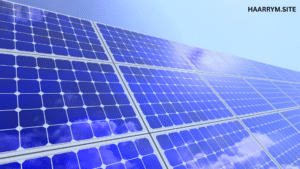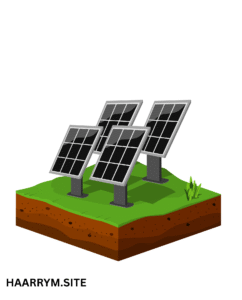Many homeowners and do-it-yourself solar aficionados are learning more about what makes a system run well as solar energy keeps growing in appeal. Although inverters and solar panels get most of the focus, solar panel connections are very vital yet often disregarded. These connectors provide safe and efficient electrical connections between cables, inverters, and solar panels—so either making or breaking the safety and efficiency of a solar power system.
Knowing the different kinds of solar panel connections is essential whether you want to better understand your current configuration or add solar panels. The most often used solar connections in house, business, and off-grid systems will be broken down in this page. We will also go over their advantages, drawbacks, compatibility problems, and pointers on selecting the correct one.
Why Are Solar Panel Connectors Important?
Solar connectors are electrical components that join the wires between your solar panels and other parts of your photovoltaic (PV) system, such as combiner boxes, charge controllers, and inverters.
Here’s why solar panel connectors matter:
-
Safety: Proper connectors prevent arcing, overheating, and electrical fires.
-
Efficiency: They ensure minimal power loss due to resistance or poor contact.
-
Compatibility: Some connectors are brand-specific; mismatching can reduce performance.
-
Ease of Installation: Quality connectors speed up the wiring process and make the setup plug-and-play.
In short, using the right type of connector is essential for the performance and longevity of your solar setup.
1. MC4 Connectors – The Industry Standard
What are MC4 Connectors?
MC4 (Multi-Contact 4 mm) connectors are by far the most widely used connectors in the solar industry today. Developed by Multi-Contact (now part of Stäubli Electrical Connectors), MC4s are single-contact, locking connectors designed to be weatherproof and secure.
Key Features of MC4:
-
IP67 Rated (dust-tight and waterproof)
-
UV and ozone resistant
-
Snap-lock mechanism for safety
-
Rated up to 1000V or 1500V DC
-
Standard in almost all modern solar panels
Why Choose MC4 Connectors?
-
Universal: Most solar panels come pre-installed with MC4 connectors.
-
Safe and Secure: Prevents accidental disconnection.
-
High Voltage Handling: Suitable for both small and large solar arrays.
-
Field Proven: Over a decade of industry use.
Drawbacks:
-
Tool Required for Disconnection: You’ll need a special MC4 disconnect tool.
-
Not Interchangeable with Older Types: Not backward-compatible with MC3 or Tyco.
2. MC3 Connectors – The Predecessor to MC4
Before MC4 connectors took over, MC3 (Multi-Contact 3 mm) connectors were commonly used in early 2000s PV systems. Though now largely obsolete, you might still encounter them in older installations.
Features:
-
Simpler design with push-fit connection
-
No locking mechanism
-
Rated up to 600V DC
Why They’re Less Common Now:
-
Lack of Locking Mechanism: Easier to disconnect, which can be a safety concern.
-
Lower Voltage Rating: Less suitable for modern high-capacity systems.
-
No Longer Compliant: Doesn’t meet current NEC (National Electrical Code) standards.
Best For:
Historical context, academic purposes, or troubleshooting old systems.
3. Tyco Solarlok Connectors
Tyco Electronics (now TE Connectivity) developed the Solarlok connector to provide a reliable and quick-connection method for solar panels.
Key Features:
-
Rated up to 1000V DC
-
Compatible with 10-12 AWG wires
-
Push-lock design
-
Polarized to avoid reverse polarity
Advantages:
-
Quick Installation: Doesn’t always require crimping tools.
-
Polarity Protection: Built-in design to avoid incorrect wiring.
Disadvantages:
-
Less Common Today: Rarely seen in newer systems.
-
Compatibility Issues: Not interchangeable with MC4 or MC3.
-
Shorter Lifespan: Prone to UV degradation over time.
4. Amphenol H4 Connectors
Amphenol Industrial introduced the H4 connector as a competitor to the MC4. It looks and functions very similarly but has some enhanced features.
Why Choose Amphenol H4?
-
Tool-free assembly: In some variants
-
UL and TÜV certified
-
Compatible with MC4 connectors (check exact specs)
-
Rated for 1500V DC, ideal for commercial systems
Advantages:
-
MC4 Compatibility: A huge plus for system integration
-
High Voltage Rating: Suitable for large-scale solar farms
-
Field Installable: Can be attached in the field without special equipment
Potential Cons:
-
Slightly more expensive than MC4
-
May require proprietary crimping tools for some models
5. Radox Solar Connectors
Radox connectors, manufactured by HUBER+SUHNER, are mostly seen in industrial and large-scale applications, especially in Europe. Known for their high durability and performance in extreme environments.
Key Benefits:
-
Designed for high-temperature environments
-
Compatible with Radox solar cables
-
Excellent resistance to UV and ozone
-
Long-term reliability in harsh conditions
Use Cases:
-
Utility-scale solar installations
-
Remote or desert environments
6. T4 Connectors by Trina Solar
T4 connectors are often found on solar panels manufactured by Trina Solar. These are designed to be comparable to MC4 in form and function but are brand-specific.
Specs:
-
Rated for 1500V DC
-
Waterproof and UV-resistant
-
Toolless locking design
Pros:
-
Designed for fast field assembly
-
High voltage capacity
-
Made to complement Trina panels
Cons:
-
Limited Compatibility: Works best with Trina solar components
-
Less universal than MC4
7. H4 UTX Connectors (Amphenol Next-Gen)
The H4 UTX series is an upgraded version of the original H4 connector with better certifications and material integrity.
Highlights:
-
UL 6703 & NEC 2017 compliant
-
Certified up to 2000V DC
-
25-year reliability guarantee
-
RoHS and REACH compliant
Ideal for:
-
Systems requiring the highest safety and regulatory compliance
-
Long-term commercial and utility installations
8. Staubli EVO2 Connectors
Another innovation by the creators of MC4, Stäubli EVO2 connectors are the next evolution of their popular design, offering enhanced thermal resistance and better long-term performance.
Features:
-
Improved Contact Technology for lower resistance
-
High current carrying capacity
-
Ideal for high-temperature regions
-
Rated up to 1500V DC
Comparison Table of Common Solar Panel Connectors
| Connector Type | Voltage Rating | Locking Mechanism | Compatibility | Common Use |
|---|---|---|---|---|
| MC4 | 1000V-1500V | Yes | Universal | Residential/Commercial |
| MC3 | 600V | No | Obsolete | Old Systems |
| Tyco Solarlok | 1000V | Yes | Proprietary | Legacy Systems |
| Amphenol H4 | 1500V | Yes | MC4 Compatible | Commercial/Utility |
| Radox | 1000V+ | Yes | Specific Systems | Industrial |
| T4 (Trina) | 1500V | Yes | Trina Only | Trina Panels |
| H4 UTX | 2000V | Yes | Advanced Systems | Utility-Scale |
| EVO2 | 1500V | Yes | MC4 Evolution | Harsh Environments |
How to Choose the Right Solar Connector
Here are a few practical tips to help you select the best solar connector for your needs:
1. Check Compatibility
If your solar panels already come with connectors pre-installed, choose cables and accessories that match.
2. Think About the Environment
For hot, humid, or desert climates, look for UV-resistant and waterproof connectors like Radox or EVO2.
3. Voltage and Current Rating
Always select connectors that can handle more than your system’s rated voltage and current to avoid overheating.
4. Ease of Installation
Some connectors like Amphenol H4 and MC4 are easier to install, especially in field conditions.
5. Regulatory Compliance
Ensure that the connector is UL, TÜV, or NEC compliant, especially if you’re applying for grid-tie permits or incentives.
Conclusion
Though tiny, solar panel connections are essential part of any solar energy system. Whether you are a homeowner, installer, or hobbyist, knowing the varieties of solar panel connectors—from MC4 and MC3 to H4, Tyco, and beyond—helps you create safer and more effective solar configurations.
Stuck in uncertainty, stick to MC4 connections as they are industry-standard and compatible with most equipment. For improved performance, nevertheless, if you are dealing with certain manufacturers such as Trina or Amphenol, you might find advantage in utilizing their own or upgraded connections.
Investing in the correct connections guarantees your system runs consistently for years to come, not just makes installation easier.

